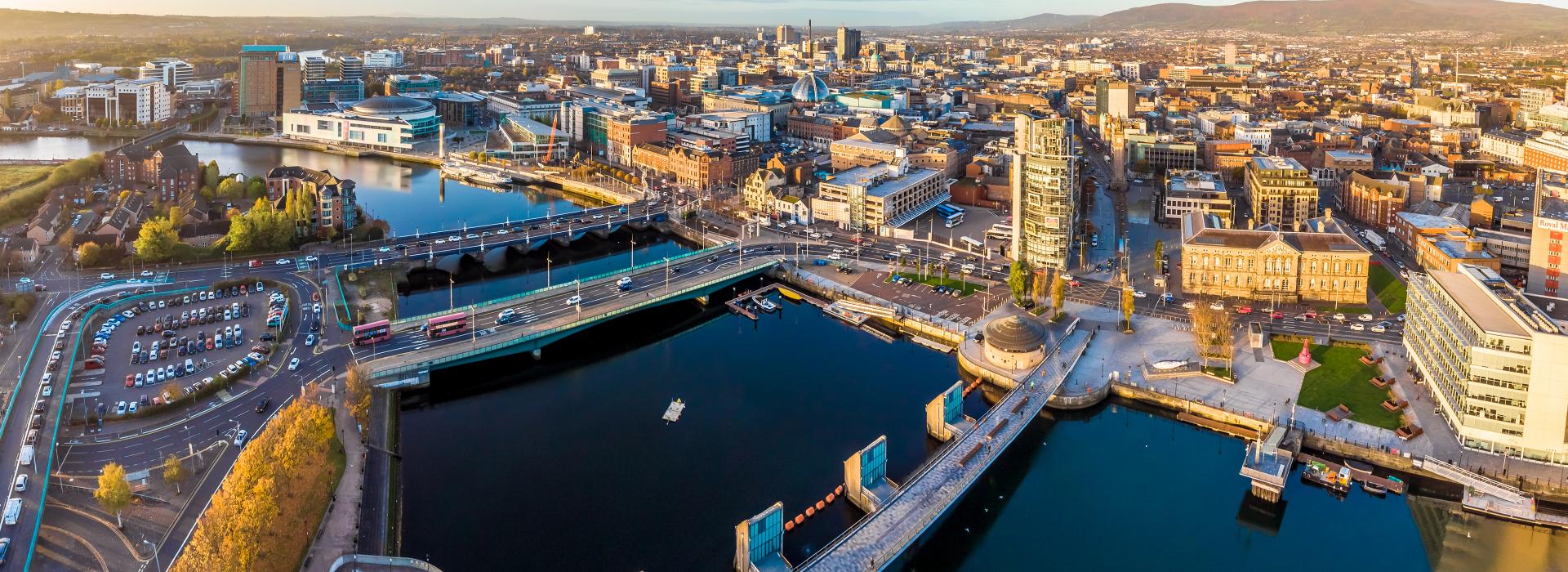
Belfast signed its climate emergency declaration in October of 2019, and is due to set a target date in 2021 for the city to reach Net Zero emissions. Produced by the ESRC Place-Based Climate Action Network for the Belfast ClimateCommission, this Net Zero roadmap is designed to feed into Belfast’s deliberations on its target date for Net Zero, and to inform how it can work towards an ambitious target in the coming years, including through the adoption of a green recovery programme.

The Belfast Climate Commission was established in 2020 to support the city to make positive choices on issues relating to energy, carbon, weather and climate. Members of the Commission are drawn from key organisations and groups across the city from the public, private and civic sectors.
The Belfast Resilience Strategy was developed after 2 years of research in December 2020. Part of the success of the Strategy was the contribution of residents and communities across the city and their commitments to projects that ultimately aim to deliver the goal: To transition to an inclusive, Net Zero- emissions, climate-resilient economy by 2050
This LAEP builds a strategic case for local energy system decarbonisation in Belfast. The evidence base is guided by existing ambitions, plans, and strategies for Belfast stakeholders and the wider Northern Ireland context.
GDS-Index results for 2024 recognises Belfast as the most sustainable visitor destination in the UK and Ireland and ranks alongside Sydney, Singapore, Oslo and Copenhagen in this year’s official Top 10.
City Hall, Belfast BT1 5GS
https://www.belfastcity.gov.uk/